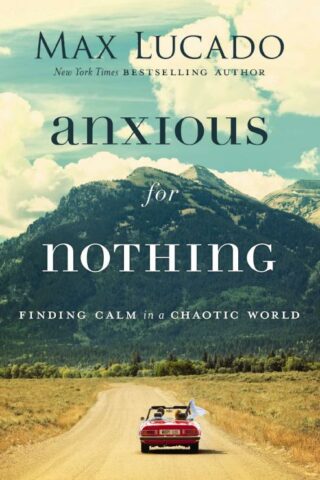Online Mission And Ministry
$14.99
Many clergy and churches are now taking to the internet and social media to promote their churches or ministries, but few have thought through some of the difficult pastoral and theological issues that may arise.’Virtual vicar’ Revd Pam Smith guides both new and experienced practitioners through setting up online ministries and considers some of the issues that may arise, such as:Are relationships online as valid as those offline? Is it possible to participate in a ‘virtual’ communion service? How do you deal with ‘trolls’ in a Christian way? What is it appropriate for a clergyperson to say on social media?
in stock within 3-5 days of online purchase
SKU (ISBN): 9780281071517
ISBN10: 0281071519
Pam Smith
Binding: Trade Paper
Published: September 2017
Publisher: SPCK
Print On Demand Product
Related products
-
Love Stories Of The Bible Speak
$30.00The Bible is full of “love” stories. But the Biblical idea of love is so much bigger than we imagine.
Love is at the heart of the Bible. From the moment Adam declared Eve “flesh of my flesh”…to the sacrificial love of Joseph for Mary…to the deep friendship of David and Jonathan…to the abounding and never-changing love of God: The Bible is a love story. But it also redefines the way the world tells us we should think about love.
The Bible reveals not just butterflies and broken hearts. In Scripture, we see God’s beautiful design for the partnership of marriage. We witness friendships that cross all boundaries. We watch as families navigate the many seasons of life. Our guiding example for them all is the deepest, most abiding, foundational love ever known: God’s unconditional love for His people.
In The Love Stories of the Bible Speak, Shannon Bream draws lessons from the good, the bad, and the ugly of Biblical romances, friendships, and families. She shows how God’s love is often very different from ours, turning upside down our assumptions about life, relationships, and each other.
The Love Stories of the Bible Speak reminds us that, no matter where we find ourselves, God’s unwavering love will sustain and guide us. These insights into biblical relationships will uplift and encourage you, and reveal new dimensions to the most central Christian duty: to love God and your neighbor.
Add to cart1 in stock
-
And The Two Became One Journal
$16.50HARDCOVER, COPTIC BOUND JOURNAL: Allows book to lay completely open when flat for ease of use
192-LINED PAGES: Journal measures 6.5 x 8.5 x 0.75-inches
BECOME ONE: White with gold foil print; reads “And the two shall become one”
INCLUDES 8 ALTERNATING PHRASES: Each page has a different message about marriage, relationships and love
Add to cartin stock within 3-5 days of online purchase
-
Problem Of Pain
$17.99For centuries Christians have been tormented by one question above all — If God is good and all-powerful, why does he allow his creatures to suffer pain? C. S. Lewis sets out to disentangle this knotty issue but wisely adds that in the end no intellectual solution can dispense with the necessity for patience and courage.
Add to cart1 in stock (additional units can be purchased)
-
Hollywood Commandments : A Spiritual Guide To Secular Success
$25.99DeVon Franklin, New York Times bestselling author of The Wait and prominent Hollywood producer, reveals that secular and spiritual success are not opposites. To have one, you need the other.
You can be wildly successful without losing your faith. In fact, your secular success will strengthen your faith if you allow it. Too often we believe that success in secular environments contradicts the core principles of faith, but the opposite is true: Your faith was designed to thrive in the secular world and to transform it as a result. You may never experience the true fulfillment you were created for until you pursue the secular ambitions in your heart.
New York Times bestselling author DeVon Franklin knows this to be true. In The Hollywood Commandments, the prominent Hollywood producer and spiritual success coach reveals 10 life-changing lessons picked-up from his over-twenty-year career in the entertainment business. You won’t learn these lessons in the church yet they will help you achieve an amazing life and thriving career that glorifies God. The Hollywood Commandments will help you:
–Identify how to use what makes you unique to propel your career.
–Overcome fear and build the courage to pursue new opportunities waiting for you.
–Gain the confidence to make important life decisions with greater peace and clarity.
–Negotiate the life and career advancement you deserve.No, you don’t have to work in Hollywood for this book to work for you, these “commandments” apply to every walk of life! If you are stuck, looking for the secrets to advance your career, or have a feeling there’s more to life, this book is for you.
Add to cart1 in stock
















Reviews
There are no reviews yet.